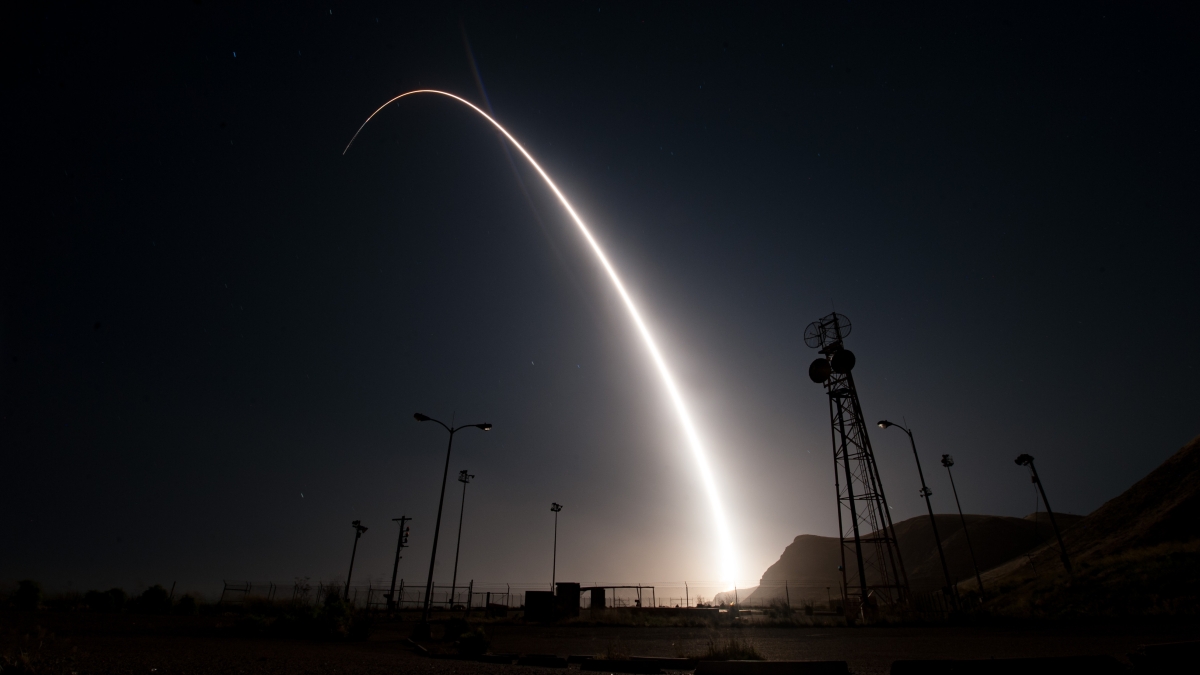North Korea. Iran. Trump’s tough talk on beefing up the U.S. nuclear arsenal.
Not since the Cuban Missile Crisis of 1962 has the world heard such nuclear saber rattling, leaving many Americans on edge.
Are we on the brink of nuclear disaster, or did we simply forget how to play nice? For answers, we turned to Jeffrey Kubiak, a retired U.S. Air Force colonel and senior fellowKubiak is also a professor of practice in the School of Politics and Global Studies. at the Center on the Future of War at Arizona State University.
Jeffrey Kubiak
Question: To what extent have nuclear weapons provided global security in the past?
Answer: It's my opinion that nuclear weapons haven't provided global security. While it's true that we've enjoyed a world absent of major wars between great powers since 1945 — at least partly because of nuclear weapons — in many ways we've enjoyed security despite nuclear weapons.
Nuclear weapons are inherently offensive in nature and are really only useful to deter attack. The U.S. and the world avoided unimaginable destruction on more than one occasion during the Cold War by luck and the good judgment of national leaders and some low-ranking operators. Even today, the security of nuclear weapons and nuclear material is a huge, perhaps underappreciated concern. Growing up in the 1960s and attending college in the 1980s, it was obvious to me that America didn't feel secure almost entirely because of nuclear weapons.
Q: Has the role of nuclear weapons fundamentally changed, and is mutually assured destruction (MAD) a feature of future international relations?
A: Mutually assured destruction means that as long as the great powers have nuclear arsenals that can devastate each other (which will be true for the foreseeable future), no country will be the first to use nuclear weapons, because their destruction is assured. The mechanisms of MAD still operate today between the U.S. and Russia and China much as they did during the Cold War.
Other nuclear powers have a slightly different calculus, but the mechanism is largely the same: make costs of aggression on the part of an adversary unacceptably high. Israel's adversaries don't have nuclear weapons, so its arsenal deters conventional attack. North Korea can't destroy its adversaries, including the U.S., but it's apparently on the verge of being able to inflict nuclear damage on the U.S. This will very likely alter in some way the U.S. strategic calculus with regard to its security obligations in East Asia.
MAD for the smaller nuclear powers is “mutually assured damage.” Their arsenals are not likely to be large enough to threaten the existence of other states but can inflict enough damage to significantly alter the strategic decision making of their adversaries.
Q: Is there a better way to keep the proliferation of nuclear weapons in check?
A: The fundamental reason for having nuclear weapons in the contemporary environment is to deter attack or any attempt at regime change. Nuclear weapons are an insurance policy for regimes that feel threatened by their neighbors or are at odds with the U.S.-led world order. As long as there are regimes with reason to feel insecure, especially if they face explicit threats to their hold on power, there will be an incentive by those regimes to develop a nuclear capability. Insecurity is an inherent characteristic of the international system. It can be made worse or better by behaviors of neighbors and global great powers, but it is unlikely to go away.
Q: Is it possible to eliminate all nuclear weapons?
A: Possible? I'll go out on a limb and say — maybe. Is it likely? I'm not putting any money on that bet. It is a dilemma that exists in any violent conflict: Disarming can be unreasonably dangerous. Creating a sufficiently credible commitment by all parties to disarm is incredibly hard to do in the anarchic international system, so states rationally decide that they simply cannot do it.
Top photo: The Air Force launches an unarmed Minuteman III intercontinental ballistic missile during an operational test from Vandenberg Air Force Base in California on April 26. Courtesy of Air Force Nuclear Weapons Center Public Affairs
More Law, journalism and politics

ASU committed to advancing free speech
A core pillar of democracy and our concept as a nation has always been freedom — that includes freedom of speech. But what does that really mean?Higher education doesn’t have an agenda to curate a…

ASU experts share insights on gender equality across the globe
International Women’s Day has its roots in the American labor movement. In 1908, 15,000 women in New York City marched to protest against dangerous working conditions, better pay and the right to…

ASU Law to offer its JD part time and online, addressing critical legal shortages and public service
The Sandra Day O’Connor College of Law at Arizona State University, ranked 15th among the nation’s top public law schools, announced today a new part-time and fully online option for its juris doctor…



